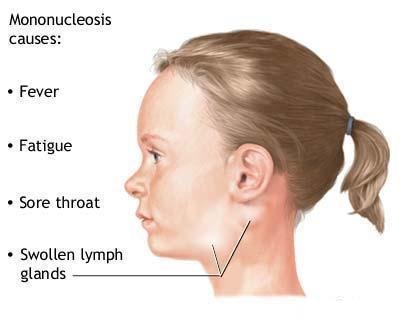
Splenomegaly from recurrent infectious mononucleosis in an NCAA Division I athlete. Recurrence of infectious mononucleosis in adults after remission for 3 years: A case report. Centers for Disease Control and Prevention. Risk factors and outcome of concurrent and sequential multiviral cytomegalovirus, Epstein-Barr virus, BK virus, adenovirus and other viral reactivations in transplantation. Epstein-Barr virus (EBV) reactivation and therapeutic inhibitors. You’ll need to see your doctor to find out if you have it. Clinical manifestations and treatment of Epstein-Barr infection. Mononucleosis, or 'mono,' has a wide range of symptoms, which can make it hard to diagnose.
It also could happen when stomach muscles are used, as in weightlifting. It could happen in a sport where the stomach presses on something, such as an uneven bar in gymnastics. This could happen during a contact sport. And a swollen spleen can be damaged by pressure on the stomach during sports. This is because the spleen can swell during a mono infection. The disease is spread through saliva and can cause fever. If you do have mono, your provider may suggest you avoid sports. Infectious Mononucleosis fact sheetInfectious mononucleosis mostly affects teenagers and young adults. See your health care provider to get diagnosed. Signs And Symptoms Of Mononucleosis In Babies Some babies may not develop any symptoms or may have only mild symptoms of mono. Other illnesses can cause these symptoms as well. Swollen lymph nodes in the neck and underarms.Mono is diagnosed through a physical exam and blood tests. Symptoms Drowsiness Fever General discomfort, uneasiness, or ill feeling Loss of appetite Muscle aches or stiffness Rash Sore throat Swollen lymph nodes. Talk to your health care provider if you've had mononucleosis before and you think you have symptoms of it again. Common mono symptoms include fatigue, fever, swollen lymph nodes, and sore throat.

It doesn't come back, but instead is a new infection. Most people will never have another bout of mono caused by EBV.Īfter you recover from mononucleosis caused by EBV, it's possible to get mono again from a different source. But overall, it's highly unlikely to happen. More research is needed to understand the extent, if any, that this happens in otherwise healthy adults. Some studies suggest that it's possible to get mononucleosis again after you recover from mono linked to EBV. The classic symptoms of mono are: extreme tiredness, or fatigue a high fever a headache body aches and muscle weakness a red, sore throat swollen glands in the neck or underarms an enlarged.


 0 kommentar(er)
0 kommentar(er)
